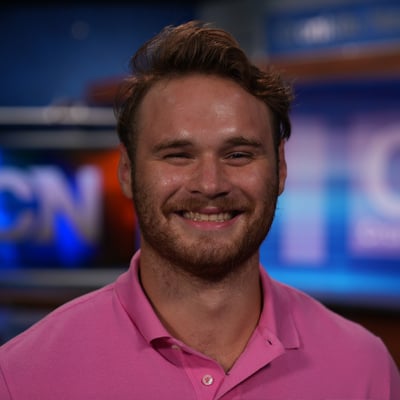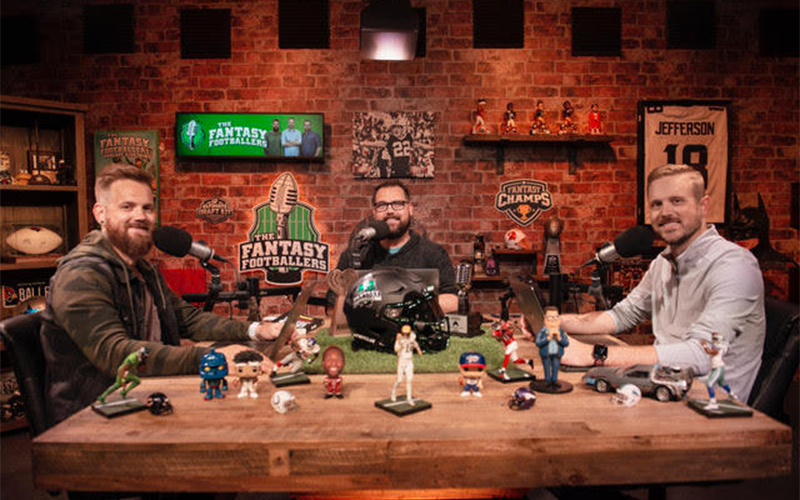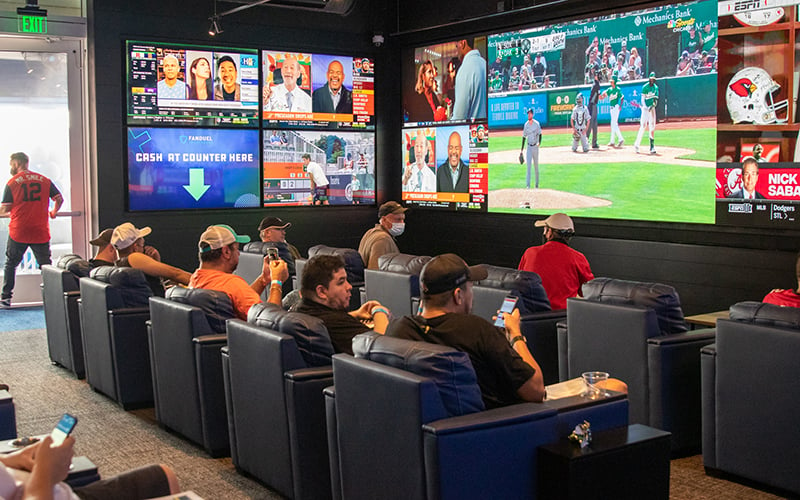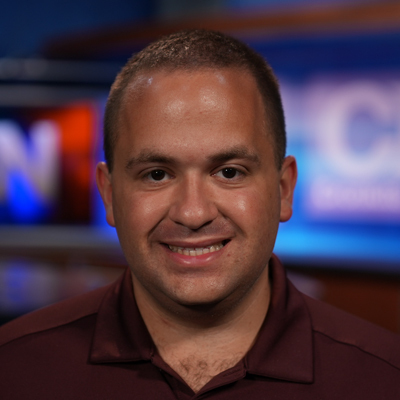PHOENIX – Every week fans huddle around their laptops, phones and televisions to watch a virtual team they’ve spent hours constructing “play” against another online foe. For most, fantasy football is a game among friends, family or co-workers.
But for Arizona natives Mike Wright, Andy Holloway and Jason Moore of “The Fantasy Footballers” podcast, it’s a livelihood.
The trio, which records a podcast out of a studio in Phoenix, has compiled a massive following. Their podcasts have been streamed more than 36 million times and their YouTube Channel has more than 263,000 subscribers.
And they have tapped into an increasingly popular business. The global market for fantasy sports is expected to reach $22 billion in 2021, Research and Markets report.
The fantasy sports moguls have built a business out of what began as a typical fantasy league with some creative twists.
“We have traditions in our league that are pretty fun,” Holloway said. “We have a ‘Wheel of Water’ app that we made years ago. When someone finishes last in our league, we make them wear a huge heavy sweater on draft day, and each league member spins the wheel. Then they get water dumped on them in embarrassing ways.
“Then they have to draft soaking wet in a giant sweater. It’s hilarious.”
Wright, Halloway and Moore also have friends come and announce their draft picks in person, mimicking the NFL Draft.
“We’ve convinced friends to suit and tie up and come announce our draft, like it’s like they are (NFL Commissioner) Roger Goodell calling up picks for the real NFL Draft,” Wright said. “We take this very seriously.”
From 2010 to 2015, Wright and his co-hosts all worked for Broken Bulb Game Studios, a tech company based in Scottsdale. They bonded over their love for fantasy sports and the NFL. Eventually the trio went all-in on “The Fantasy Footballers,” Wright said.
The 36-year-old Wright, along with Holloway, 35, and Moore, 36, started recording their podcast in the break room at Broken Bulb during lunch. Later, they recorded at each other’s homes before moving into their Phoenix studio in 2017.
However, the transition from each stage to the next wasn’t simple.
While they saw success through an increase in listeners and downloads, they didn’t see the same return in dollars or financial support. While initial financial struggles were real, Wright had no regrets and no doubt about the podcast’s potential.
“We knew the audience was there,” Wright said. “You could see the download numbers, and you could see us moving up the charts. It was to the point that this show really could compete in the podcast space. People were latching onto the friendship and camaraderie that the three of us have.
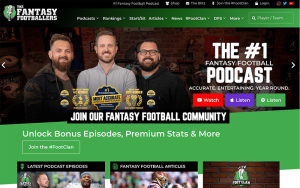
The Fantasy Footballers record their show in Phoenix and have become the most popular Fantasy Football podcast, garnering over 36 million streams. (Screenshots by James Franks/Cronkite News)
“Talking about fantasy football, we often say the show is like a fourth person. Really, when you’re the listener, you’re the fourth person at the table. We knew that the numbers were there. We just knew we needed to tread water long enough that we could tell we could catch up.”
“The Footballers” stayed afloat long enough to see their brand spread. Their subscriber count grew. Their influence expanded. And their fanbase got bigger. For Wright, interacting with fans was the signal that the podcast had made it. On February 2, 2017, “The Fantasy Footballers” recorded a live podcast prior to Super Bowl LII in Minnesota before a sold-out audience.
“We get to this room and looked at the chairs … I’m like, ‘There’s way too many chairs here. There’s no way,’” Wright said. “‘There’s no way we sold all of these seats. Like you are lying to my face.’
“But sure, you know, it comes time to go on board and go perform for these people. And we go running out, and there is not an empty seat in the house.”
“We know that millions of people per month are listening. If you don’t see them, you don’t interact with them, it’s only social media. When we sat down in front of that live audience, they all just just showered us with love. That was a really, really overwhelming moment.”
Building a nationwide brand and accumulating such a broad fanbase has made the experience even more rewarding for the three Arizonans.
“There are so many aspects that make it rewarding, but most of all it’s the interaction with the listeners and having the freedom to develop the community, the tools and resources in the space that people enjoy,” Holloway said. “Being independent means we can fully run after the aspects most important to us. It’s rewarding to provide a living for our employees and build a culture, too.”
